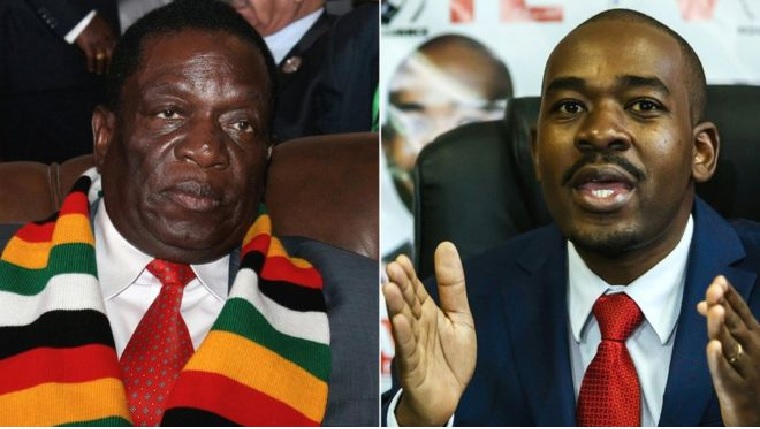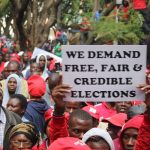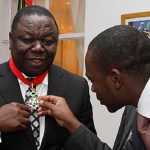 For the country’s 5.7 million registered voters this is the highest-stakes election since 1980, as much for its conduct as its political outcome.
For the country’s 5.7 million registered voters this is the highest-stakes election since 1980, as much for its conduct as its political outcome.
A credible and peaceful poll will allow a slow resolution of the country’s US$10 billion debt burden, including $2 bn. of arrears to international financial institutions.
More immediately, a free election would trigger substantive flows of private and foreign government finance to shore up the economy, locked down by a foreign exchange and monetary crisis.
Matters of trust, security and the economy top the voters’ concerns, according to the pollsters. All the more so, given the wholesale theft in diamond and other mining operations over the past two decades and the suborning of the civil service.
The ruling Zimbabwe African National Union-Patriotic Front is using its incumbency to the full, with President Emmerson Mnangagwa’s office announcing this week a 17.5% special allowance for all civil servants, compared with wage awards of 2.5% across the wider economy.
Civil service salaries already consume about 90% of the $4 bn. national budget and the deficit is soaring.
It could be a brief bonanza. A senior official told Africa Confidential that whichever party wins, about one third of the civil service will be made redundant as part of a restructuring deal.
Although the latest independent Afrobarometer pre-election survey had the two main parties – ZANU-PF and the Movement for Democratic Change-Alliance – almost level-pegging, the opposition is gaining ground. A fifth of respondents would not discuss voting intentions.
In the new survey, released in mid July, ZANU-PF has fallen to 40% from 42% in May and the MDC Alliance has risen to 37% from 31%.
It also shows rising support for the MDC’s Nelson Chamisa but a slight dip in backing for ZANU-PF’s Mnangagwa in the presidential race.
The momentum behind Chamisa comes mainly from his energetic campaigning. By the close of campaigning on 29 July, Chamisa will have held more than 80 rallies, while Mnangagwa is reckoned to have addressed about half that.
Both Chamisa’s and Mnangagwa’s rallies have drawn large crowds, the latter helped by the bussing-in of popular musicians and DJs and doling out party paraphernalia, T-shirts and baseball caps.
Despite that, there are multiple reports that attendees at ZANU-PF rallies have been leaving early once the music stops and turgid speeches begin.
Embarrassingly for the ruling party, there is video of soldiers urging people not to leave the rallies.
Trust in Chamisa has also risen to 48% from 40% in May; trust in Mnangagwa remains at the 47% reported in May, according to Afrobarometer.
Continued next page
(332 VIEWS)


